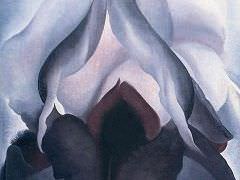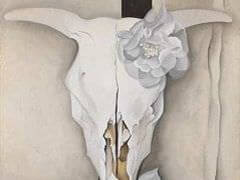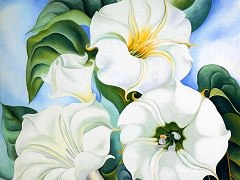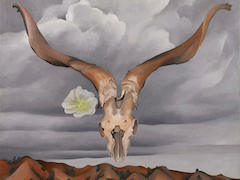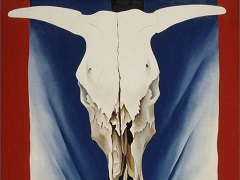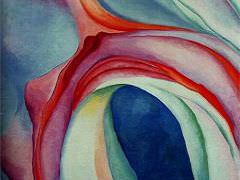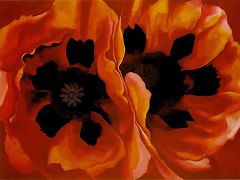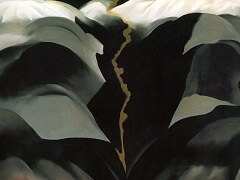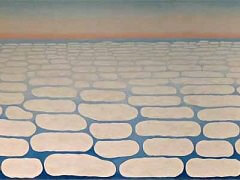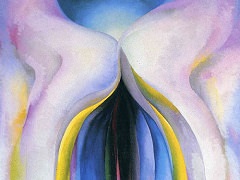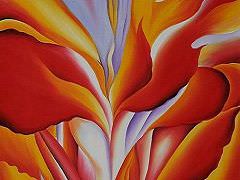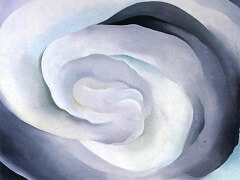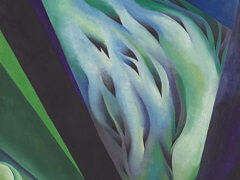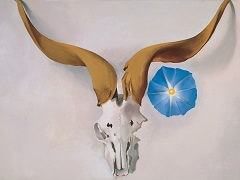The Red Maple at Lake George, 1926 by Georgia O'Keeffe
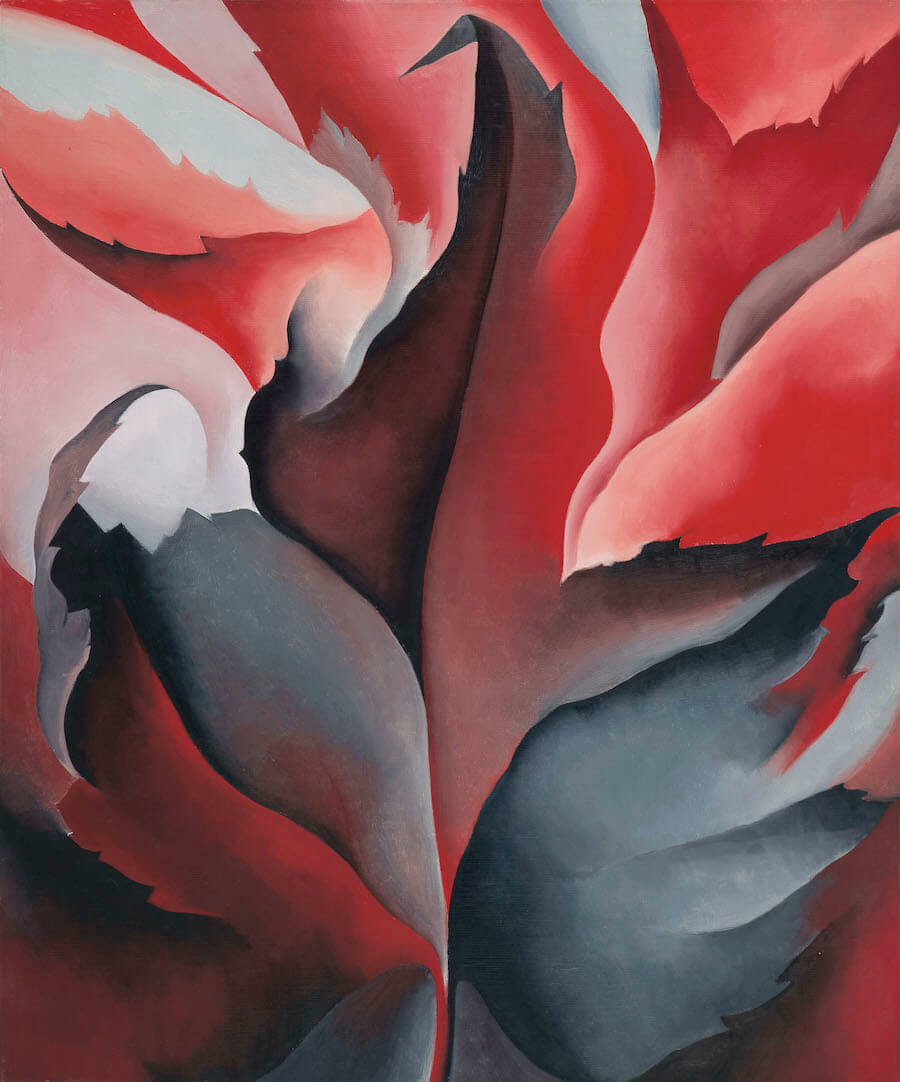
Georgia O'Keeffe was a key player in the emergence of a uniquely American form of modern art. After early studies in both Chicago and New York during the First decade of the twentieth century, O'Keeffe took up teaching posts in South Carolina and Texas before returning to New York in 1918. Here, her career was supported by Alfred Stieglitz, the influential owner of a gallery called 291, whom she married in 1924. In the mid-1920s, O'Keeffe was initially influenced by the Precisionists, and produced a series of hard-edged works representing New York skyscrapers, such as New York with Moon (1925), It was also around this time that she started to produce near-abstract paintings, based upon natural forms inducing plans, flowers, and shells.
The Red Maple at Lake George provides a key example of this approach. Here the entire canvas is idled with soft, undulating, forms, executed in luminous recs and blacks. The use of carefully modulated tonalities reminiscent of watercolor paintings gives the impression of light, ephemeral forms floating in an undefined space, At the same Lime, however, these shapes evoke, though never fully describe, natural forms, suggestive of leaves seen in extreme close-up,

